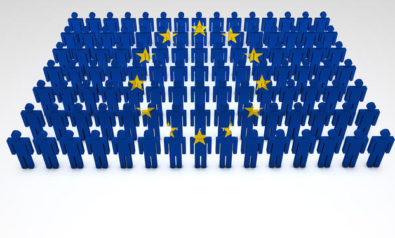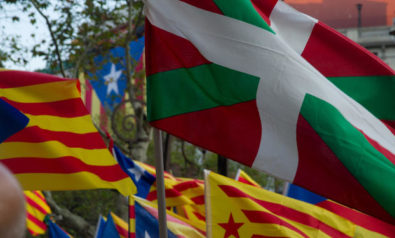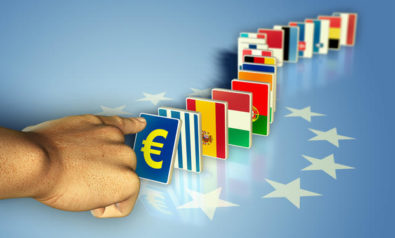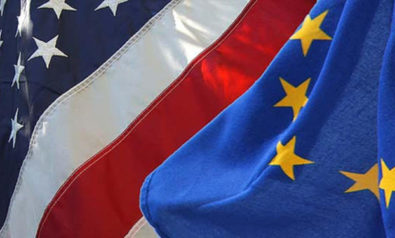Due to differences in – inter alia – language, culture, and economic priorities, Belgium has been increasingly federalized through successive state reforms. What does it mean for the country as ‘the mother of all elections’, scheduled for 2014, draws closer?
by Bruno Vandecasteele, Ferdi Deville & Hendrik Vos
Federalism in Belgium
The federalisation of Belgium formally started in 1970 and is still ongoing. In 1993, Belgium’s unique federal system, consisting of a central state, three economic Regions (Wallonia, Flanders and Brussels-Capital Region) and three cultural Communities (French-speaking, Dutch/Flemish-speaking and German-speaking), was enshrined in the Constitution.
The Flemish Community comprises the Flemish Region plus the Flemish-speaking inhabitants of the Brussels-Capital Region. The French Community consists of the French-speaking part of the Walloon Region plus the French-speaking inhabitants of the Brussels-Capital Region. The territory of the German-speaking Community lies within the Walloon Region. All entities have their own capital, government, parliament, administration, and symbols (flag, anthem, ‘national holiday’). The Flemish Region and the Flemish Community merged into one political structure.
The Regions have powers in territory-related fields (e.g. environment, agriculture), the Communities have ‘language-based’ competencies (e.g. culture, education). The Federal level manages the public finances, the army, the judicial system, social security, foreign affairs, substantial parts of public health and home affairs, as well as everything that does not explicitly come under the Communities or Regions.
The subnational entities not only have far-reaching internal political, legal and spending autonomy, but also foreign responsibilities in the fields for which they are domestically competent, including the right to conclude treaties on those matters. The Regions and Communities also play a direct role in day-to-day European decision-making. The Maastricht Treaty allowed regional ministers to be members of the Council instead of national ministers, provided that there is only one head of delegation who speaks for his/her state as a whole: any federal or regional minister should defend the Belgian point of view, and the Belgian votes cannot be divided. The representation of Belgium in the Council is regulated by Cooperation Agreements of 1994 and 2003 between the federal and subnational governments. Depending on the topic, a federal or regional minister represents Belgium, according to a rotation system.

Separatism in Flanders
The two most visible and most media-covered rifts between the Northern and Southern part of Belgium are related to language and economy. The former is mainly apparent in and around Brussels, where Flemish- and French-speakers live on the same territory, giving rise to struggles about political representation and language use in public services. The latter fissure is country-wide: while in the 19th century Wallonia was the economic engine of Belgium, Flanders has become the most prosperous region throughout the 20th century. Flanders has witnessed increasing separatism in the past decades. Political parties striving for Flemish independence present the financial transfers – via the national budget and social security – from North to South as an important argument for their case.
Flemish nationalism was initially represented in politics by the Volksunie (People’s Union). Due to ideological differences within the party, it was split up into several new parties. Throughout the 1990s and early 2000s, the Vlaams Blok (Flemish Bloc), explicitly advocating Flemish independence, gained increasing electoral support, even after the party was convicted for incitement to discrimination and racism and changed its name to Vlaams Belang (VB, or Flemish Interest). In the past years, however, its popularity has quickly declinedto around 8% at present. In the latest national elections, in 2010, N-VA (New Flemish Alliance) – which defends less radical points of view than VB but still wishes to establish Flanders as an independent state after a gradual ‘evaporation’ of Belgium – became the largest political party in Flanders and even in Belgium. N-VA’s popularity rose until 2012, but throughout the year its support in Flanders stagnated at around 36%.
However, the success of nationalist parties does not reflect an overwhelming preference for Flemish independence. In a 2011 poll, only 22% of the respondents supported an independent Flanders. In Wallonia, there are no significant political parties striving for Walloon independence. Yet, while Flemish politicians increasingly push for further federalisation or even an independent Flemish State, reflections on a ‘Plan B’ sporadically pop up on both sides of the language border.
The campaign for the 2012 local elections shows how topical the issue of further Flemish autonomy is in Flanders. The elections were unusually characterized by discussions on national topics. N-VA explicitly communicated that voting for that party was a first step towards the next national election, planned in 2014. Its leader Bart De Wever, who became mayor of his hometown Antwerp, first called on the Belgian prime minister to start talks on a “confederation” and only later referred to local issues in his victory speech.
The balance of power in Belgian politics
The Flemish political parties signed an agreement in 1989 to create a cordon sanitaire against VB, meaning that they would not enter into government talks on any level with this party. After it changed its name, no new agreement was signed, but government talks with VB are still taboo.
There is no such cordon against N-VA; the party is a member of the Flemish Government since 2009, together with social-democrats and Christian-democrats.
N-VA took also part in the national government formation talks after the 2010 elections – which lasted for 541 days and were herewith the longest in world history – but could not find common ground on a number of issues. The current federal government is composed of social-democrats, Christian-democrats and liberals from both sides of the language border, and is implementing the 6th Belgian state reform, including a transfer of additional competences to the Regions and Communities, as well as a reform of the voting constituency system. While the government has a comfortable majority of 96 seats in 150-seat legislative chamber, it has no majority on the Flemish side; this point is often raised by Flemish nationalist parties when challenging the legitimacy of the government or the Belgian state.
While the political right is rather popular in Flanders, Walloon voters have a clear preference for left-wing parties. The governments of the French Community and Walloon Region are both composed of social-democrats, Christian-democrats and greens.
The Brussels problem
As far-reaching autonomy or independence of Belgium’s subnational entities are increasingly discussed by politicians and in the media, some practical concerns have been voiced, such as the position of Brussels. The Brussels-Capital Region is physically encapsulated in the Flemish Region, but the overwhelming majority of its inhabitants (approximately 85%) is French-speaking. The region generates around 19% of Belgium’s GDP, nearly all official institutions of the national and subnational entities are located in Brussels, and the Belgian capital hosts most EU institutions and a number of other international organisations such as the NATO. In the event of a split-up of Belgium, both Flemish and Walloon authorities would likely ‘claim’ Brussels. In 2011, the parliament of the French-speaking Community unanimously adopted a resolution stipulating that, from then on, it would use the name “Fédération Wallonie-Bruxelles” in its communications, campaigns and in the administration. This move was met with strong criticism from the Flemish government; the Flemish and national authorities do not use this denomination, neither do the Flemish media and some French-speaking media. Although the establishment of this ‘Federation’ has no far-reaching practical or legal consequences, it reveals much about the problems the status of Brussels could produce if Belgium would be divided in two.
Separatist parties and the EU
There is a general pro-European consensus among most political parties in Belgium. This consensus, combined with a low salience of EU issues to the general public, results in a low politicization of European topics. Yet, the separatist parties in Flanders hold diverging positions towards the EU. While VB explicitly rejects the current organisation of the EU, N-VA is usually viewed as contributing to the Belgian permissive consensus. However, this party takes an ambiguous approach. On the one hand, it views the EU as the most suitable macro level: it supports the austerity policies that are currently promoted by the EU, as well as deeper military integration – the EU could provide the necessary military security for the very small state that Flanders would be. On the other hand, its position on other issues is ambivalent. For example, in spring 2011, N-VA first advocated for the possibility to unilaterally reinstate border controls in the Schengen zone, and a month later stated that the Community method should be followed in the reform of the Schengen zone and that the European Commission is the best placed actor to lead this process. Also its favourable attitude towards financial support for EU members in crisis, such as Greece, is somewhat strange in the light of its firm resistance against financial transfers within Belgium. VB is unequivocally opposed to financial transfers within the EU.
There are a number of practical and legal obstacles for Flemish independence. Should Flanders become an independent state, the new country would have to re-negotiate accession to the EU, and its membership would be subject to approval by all the EU members. Other problematic issues include European citizenship, the currency, and the applicability of international treaties concluded by the EU. The Flemish nationalist parties have not yet communicated clear strategies for clarifying the uncertainties about the legal position of new states in the EU.
A look ahead
The next election period in 2014 (with regional, federal and European elections possibly on the same day or at least in the same period) has been dubbed ‘the mother of all elections’. For the N-VA, the final push to Flemish independence (even if it speaks about a more moderate post-independence state: confederation) is at stake. It hopes to profit from dissatisfaction with the current government led by a French-speaking socialist that has to carry out austerity policies. But the fact that the European elections coincide with the elections in Belgium might work against the N-VA. It could be forced to abandon its ‘constructive ambiguity’ on Europe: how does it see the transition for Flanders from a Belgian sub-state to an EU member state (if possible at all); what is its position on further European integration in financial, economic, budgetary (including fiscal capacity) and political dimensions as proposed in the Van Rompuy Report on the Economic and Monetary Union (EMU); in other words, how much sovereignty that it does not want to share at the Belgian level is it prepared to surrender to the European level?
The views expressed in this article are the author’s own and do not necessarily reflect Fair Observer’s editorial policy.
Support Fair Observer
We rely on your support for our independence, diversity and quality.
For more than 10 years, Fair Observer has been free, fair and independent. No billionaire owns us, no advertisers control us. We are a reader-supported nonprofit. Unlike many other publications, we keep our content free for readers regardless of where they live or whether they can afford to pay. We have no paywalls and no ads.
In the post-truth era of fake news, echo chambers and filter bubbles, we publish a plurality of perspectives from around the world. Anyone can publish with us, but everyone goes through a rigorous editorial process. So, you get fact-checked, well-reasoned content instead of noise.
We publish 2,500+ voices from 90+ countries. We also conduct education and training programs
on subjects ranging from digital media and journalism to writing and critical thinking. This
doesn’t come cheap. Servers, editors, trainers and web developers cost
money.
Please consider supporting us on a regular basis as a recurring donor or a
sustaining member.
Will you support FO’s journalism?
We rely on your support for our independence, diversity and quality.













Comment